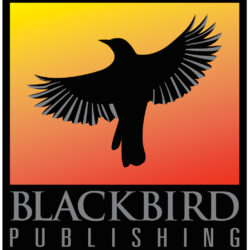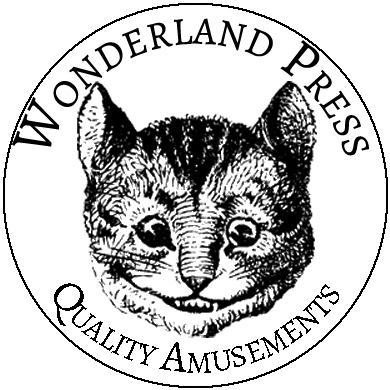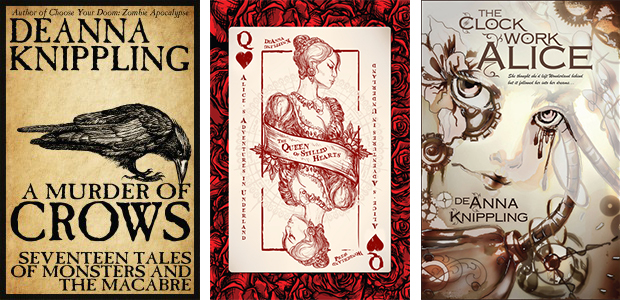Meet DeAnna!
DeAnna Knippling is a freelance writer, editor, and book designer living in Colorado. She runs Wonderland Press, a micropublisher of curious fiction and non-fiction for iconoclasts.
The Interview
You’ve been a judge for multiple writing contests. Give us an example of one type of contest, and what the authors submitted.
The contest that I’ve judged most for is the Zebulon for Pikes Peak Writers, and before it was revamped, the Paul Gillette PPW contest. In general, you end up submitting a query letter, synopsis, and sample first chapter. Just like in submitting something to an agent, the first stage is having someone read the query letter and decide whether the entry deserves more attention.
Let me tell you…I loathe query letters with a passion. It could be the best book in the world, and I would hate the query letter. I feel like authors are getting bad information on how to write query letters and are taking that information the wrong way in order to create the Most Boring Sales Pitches Ever. I don’t have a good system to replace it–learning how to write good advertising material is hard, and I don’t have it mastered yet–but I seriously would just rather burn most query letters, even if I have to print them out myself.
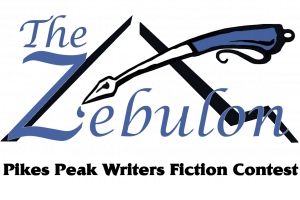 I never volunteer for that part. I would either reject everything or accept everything, nothing in the middle.
I never volunteer for that part. I would either reject everything or accept everything, nothing in the middle.
I get the submissions in the middle part mostly, where the first pass of readthroughs/judging on the synopsis and sample are done. I’ll give a little bit of feedback on the query letter if I have to, but often I’ll just scan through the query letter to see if I can pick up hints on how experienced the writer is, so I can give better feedback.
I also feel that most writers couldn’t write a synopsis to save their lives, which is unfortunate–if writers spent as much time on a synopsis as they did on their outlines (or just tossed their outlines and wrote a synopsis?), then I feel they’d have a better grasp on the core story they were trying to write. A lot of times I see things like the story not actually having an antagonist, or the writer not really being sure who the story is about, things like that.
In the sample chapters, what you get is the opening of the story, about 2500 words. My biggest pet peeve is people who are writing a prologue and trying to hide it as “Chapter One.” Uh-huh. I don’t mind a good prologue, but I vehemently resent a writer trying to fool me on this. Like it’s not immediately obvious. Sheesh.
What’s it like being a judge?
I’ve been a contest judge for a number of years. I always feel like it’s a nailbiting experience, swinging between the poles of snark and honestly providing feedback? As in, writers have a tendency (I’m no exception) to have a mental running Snark-o-meter whenever they’re reading critically. And yet those comments aren’t helpful, and I usually have to go over my responses several times to make sure I’ve cut most of that out.
I’ve spoken to a number of contest participants, and it seems like the people who are sending in contest entries–especially in contests that don’t lead directly to being published in an anthology–are looking for feedback that they’re not getting from their usual sources. A lot of them are early writers who don’t have a writing community at home to help support them, but it seems like most of the entries that I see are from writers who have been writing for a while and are covering the basics, but not seeing a lot of success in publishing.
The kind of feedback that that second level of writer needs is often hard to get, and I always wonder if I’m saying the right thing, making the right guesses about where the writer is and what they need to move forward. It’s like, sure, on the surface level you’re just trying to answer the questions, but you also have to keep in mind that someone is on the other side of those answers, dying to find out what’s working on the manuscript and what isn’t. So I’m always torn between wearing a kind of editorial hat (snark) and a writer support hat (decent feedback). I try to score like an editor and give feedback like a writer supporter, so that I’m not artificially inflating entries that probably shouldn’t win the contest just to be nice, and yet giving the most supportive (yet honest) feedback I can give.
What are you looking for in submissions?
I’m not an editor, so I don’t approach submissions by going, “What can I publish?” That’s not what a non-publishing contest is for.
Instead I’m looking for what level of writer I’m working with, first and foremost, so I can give feedback. We all have different paths as writers, which complicates things, but in general you can check off things like, “This person is handling beginner’s basics like dialogue and character correctly but not intermediate level things like pacing and opening a scene well” to determine how far along someone is. I’ve also noted a split between two different types of writers–I call them engineer brain and poet brain. Engineers plot well; poets have better style. It’s not a matter of right or wrong, but where one’s strengths lie.
Once I can kind of guesstimate how far along a writer is and the general areas of their strengths, I can start thinking in terms of what feedback might be useful.
I generally don’t care who wins a contest 🙂
How is an entry scored? Do you use rubrics of some sort?
There’s generally a checklist of some sort with spaces for feedback. I helped develop a checklist for the Zebulon with Pikes Peak Writers, and that was interesting. What are the main areas of writing? How do you organize all the aspects of writing into a system that makes sense in a contest, to multiple judges who themselves use vastly different organizational/teaching tools in their own writing? I think we did okay, but I always wonder if it could be better.
What do you aim for when you’re asked to write feedback letters?
I always aim to try to give decent advice for the level of writer involved. A lot of times, just because of the type of submissions I see, I end up typing a variation of, “You probably want to know why you’re not published yet, if everyone says you’ve got the basics down pat. Welcome to intermediate writing, where there’s not a lot of advice to be had because 90% of writers have dropped out at this point and it seems like everyone expects you to make the jump from amateur to professional with no extra work. It’s so simple, for someone who’s worked as much as you have…isn’t it? Here’s where you need to start working, though…” And then I try to block out two or three main areas for the writer to start working. I feel like the winners of contests are going to be happy no matter what I write; it’s the people who didn’t win who need to be able to walk out of a contest with a path ahead, arduous but true.
Why do you judge writing contests?
I like being able to dive down into the meat of where someone is in their craft, and find out what strengths and weaknesses they have, and how that affects the work. I’m starting to see how different writers’ points of view really affect what they write, and I find that incredibly interesting. Also, I really hope to be able to pass the education in craft that other people have given me forward, and this is one of the ways that I seem to be able to help.
What story (or stories) are you working on now, and what’s fun about what you’re writing?
I’m working on a novel in a series I haven’t released yet. It’s the third novel in a near-future thriller series. Murder and tech that’s so close to being real that it’s scary; not quite Blade Runner but in the same spirit.
…
DeAnna Knippling is a freelance writer, editor, and book designer living in Colorado. She started out as a farm girl in the middle of South Dakota, went to school in Vermillion, SD, then gravitated through Iowa to Colorado, where she lives with her husband and daughter. Some of her fondest childhood memories are of putting together haunted houses in the basement of her grandparents’ house with her cousins, and taking flying leaps off haystacks and silage piles in the middle of winter with her brother. She was in charge of coming up with the “let’s pretend” ideas when they were kids, at least in theory. But then no plan survives contact with the enemy. She now writes science fiction, fantasy, horror, crime, and mystery for adults under her own name; adventurous and weird fiction for middle-grade (8-12 year old) kids under the pseudonym De Kenyon; and various thriller and suspense fiction for her ghostwriting clients under various and non-disclosable names.
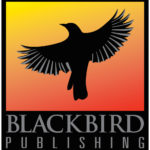
Sign up for the Blackbird Publishing newsletter!
